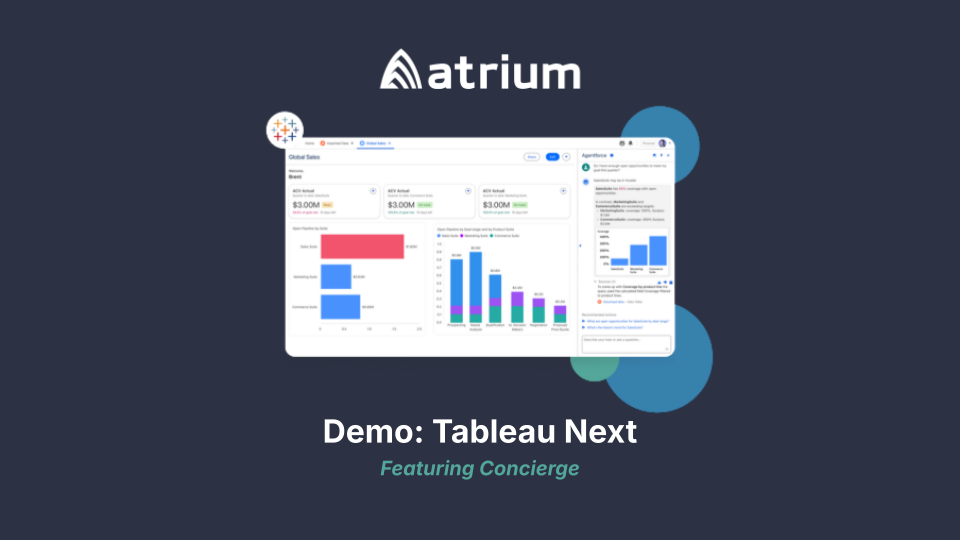The annual budget showdown is upon us, and vying for resources to fuel your CRM or data analytics project can feel like entering the Hunger Games. But what if you could transform this fight into a strategic win? The secret weapon isn’t just a brilliant idea — it’s an airtight business case that showcases the undeniable value your project brings to the table.
By aligning your project goals with the company’s strategic objectives and backing them up with hard-hitting data, you can build a business case for CRM or analytics priorities that decision-makers can’t ignore.
Unraveling the challenge: The missing link
Too often, groundbreaking CRM and data analytics projects stumble at the budget approval stage, not because they lack potential, but because the connection between these projects and the company’s broader goals remains fuzzy.
It’s easy to get caught up in the excitement of innovative technology and forget to demonstrate how it directly impacts the bottom line. Decision-makers aren’t just looking for shiny new tools; they want to see a clear path to measurable business value.
Crafting a winning strategy: The goals-first approach
To secure the resources your project deserves, start by answering the fundamental question: How can we DRIVE our CRM or data analytics project to success, ensuring it delivers measurable results that align with our strategic objectives?
By addressing these five key aspects, you’ll not only define your project’s overarching goals, but also create a roadmap for achieving them. This approach aligns your project with the company’s strategic vision, making it easier for decision-makers to see its value.
The language of business: KPIs that speak volumes & move the needle
After mapping out your project’s overarching goals using the DRIVE framework, it’s time to translate those ambitions into the language that resonates most with decision-makers: KPIs. These metrics provide concrete evidence, proving the value of your investment. Here are some powerful KPIs tailored to CRM and analytics initiatives.
Customer-centric KPIs:
- Net Promoter Score (NPS): Gauge customer loyalty and advocacy.
- Customer Lifetime Value (CLTV): Measure long-term customer profitability.
- Retention Rate: Track your ability to keep customers engaged.
- Customer Satisfaction (CSAT): Assess customer happiness with your product or service.
Operational efficiency KPIs:
- Lead-to-Opportunity Conversion Time: Evaluate sales funnel effectiveness.
- Sales Cycle Length: Analyze the time it takes to close deals.
- Customer Support Resolution Time: Measure the efficiency of your support team.
- Sales Team Productivity: Track how effectively your sales team utilizes their time.
Growth and market expansion KPIs:
- Lead Conversion Rate: Assess the success of your lead generation efforts.
- Upsell/Cross-Sell Success: Measure your ability to expand customer relationships.
- Average Deal Size: Evaluate the value of each sale.
Financial performance KPIs:
- Revenue: Track the direct financial impact of your project.
- Profit Margins: Measure the profitability of your sales.
- Return on Investment (ROI): Calculate the financial return of your marketing and sales campaigns.
The strategic alignment of your chosen KPIs with your company’s overarching goals is crucial. If your company prioritizes customer satisfaction, highlight KPIs like NPS and CSAT. If revenue growth is the focus, emphasize lead conversion rates and average deal size.
By weaving this data-driven narrative, you transform your project from a mere idea into a strategic imperative, one that directly addresses the company’s pain points and propels it toward success.
Real-world impact: Use cases that seal the deal
While KPIs quantify the impact of your project, use cases breathe life into your proposal. They paint a vivid picture of how your CRM or data analytics initiative will solve real-world problems and drive tangible results. For example:
- CRM implementation: Imagine a wealth management firm or bank where client information is siloed across various advisors, bankers, and departments. Implementing a unified CRM platform not only centralizes client data but also provides a holistic view of each client’s financial portfolio, investment preferences, and communication history. This enables advisors to deliver personalized financial advice, anticipate client needs, and proactively offer relevant products and services, ultimately deepening client relationships and driving asset growth.
- Predictive analytics with action framework: Let’s say a company wants to proactively reduce customer churn. Predictive analytics within a CRM can analyze historical customer data to identify patterns and behaviors that signal a high risk of churn. The platform could then present customer service representatives with an action framework, suggesting personalized interventions such as targeted discounts, loyalty program offers, or proactive outreach to address potential issues before they escalate. This not only improves customer retention but also transforms the role of customer service from reactive to proactive.
These are just a few examples of how CRM and data analytics projects can deliver tangible business value. By tailoring your use cases to your company’s specific needs and challenges, you’ll create a compelling narrative that resonates with decision-makers and demonstrates the transformative power of your proposed solution.
Your roadmap to success: The data-driven business case
By combining your project’s overarching goals (defined by the DRIVE framework), well-defined KPIs, and compelling use cases, you create a data-driven business case that’s hard to refuse. This approach not only secures your project’s future but also positions you as a strategic thinker who understands the bigger picture.
Remember, budgeting isn’t just about asking for money; it’s about demonstrating how your CRM or data analytics project aligns with the company’s vision and contributes to its overall success. With a well-crafted business case, you’re not just fighting for resources — you’re charting a course toward a more profitable, efficient, and customer-centric future.
Want to showcase a real analytics solution to help build your business case? Atrium has you covered!
After years of building solutions on Salesforce CRM Analytics (CRMA) and Tableau, our analytics experts have developed a way to build solutions more quickly without sacrificing quality or complexity. Take a look at our library of pre-built analytics accelerators to find inspiration and share with your leaders as you build out your business case.









